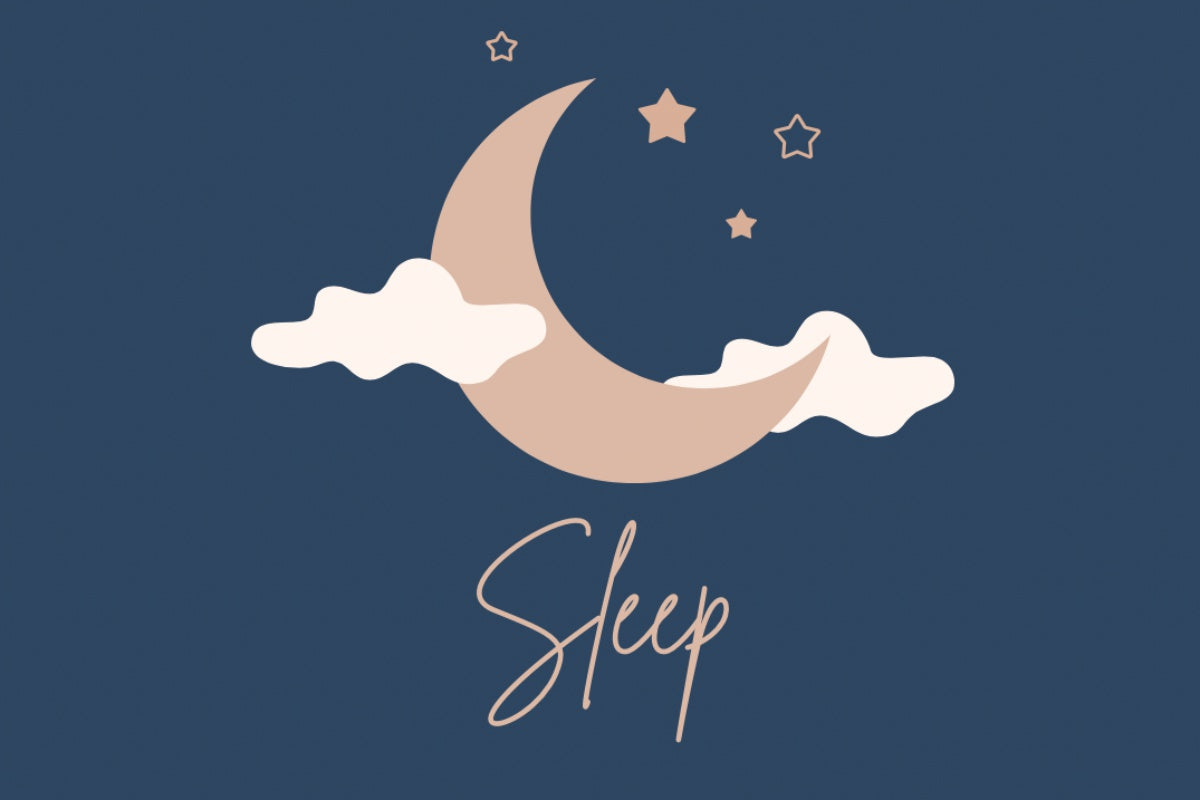As one of our favourite authors Ben Azadi says “When you improve your sleep, every aspect of your metabolism improves; but when your sleep suffers, your entire metabolic system struggles” (p69 Metabolic Freedom)
Along with diet and exercise, sleep is integral for a healthy lifestyle, but many of us experience sleep problems, whether it’s trouble falling asleep, staying asleep, or just never getting enough. Chronic lack of sleep is now being recognised as a public health crisis because of the far reaching consequences, not only for our individual health, but also for public safety.
So, why is sleep so valuable and why should we prioritise it?
Sleep plays a restorative role, repairing tissue damage and giving your body an opportunity to remove metabolic waste accumulated during the day.Your brain in particular has waste that needs to be removed at night. Poor sleep patterns are linked with lower quality of life and an increased risk of age-related diseases.
In a nutshell, lack of quality sleep is associated with:
- Higher rates of diabetes and obesity - sleep deprivation increases blood glucose and insulin levels, disrupting stress hormones like cortisol, and the hunger hormones ghrelin and leptin, leading to overeating.
- Slower metabolism - meaning your body becomes less efficient and burns fewer calories and you gain weight.
- Brain health - the glymphatic system is responsible for clearing out toxins from the brain and when sleep is compromised they can build up, which may contribute to neurodegenerative diseases such as Alzheimers.
- Throwing out our Circadian Rhythm - these rhythms regulate many processes in our body and when disrupted through poor sleep patterns or for example regular shift work, can lead to hormonal imbalances and impaired cellular function.
- Immune health - disrupted sleep also impairs the immune system.
Your body doesn’t just need a certain number of hours, it needs quality sleep.
Here are some scientifically backed hacks to help improve the quality of your sleep:
- Eat dinner early, ideally at least 3 hours before bed, mostly because your body prioritises digestion over rest and repair. If this isn’t possible, try and make it a light meal with a focus on protein and fat. Wind down to bed without a belly full of food. Lots of food in your digestive system raises your body temperature which is the opposite of what you want to do before sleep.
- Make your bedroom as dark as possible as any artificial light can disrupt your sleep pattern, giving your body signals that its time to wake up. If this isn’t possible, you could try a sleep mask.
- Make your bedroom as cool as possible, ideally about 18 degrees celcius. Your body temperature needs to drop in order to reach the deep stage of sleep.
- Go to bed at a regular time. Between 10 pm and 2 am is the best time for sleep as during this time your body produces human growth hormone, which amongst other things, helps to burn fat. Around 10 pm, you often seem to get a “second wind” and may have more difficulty falling asleep.
- Avoid screens for 90 mins before bed, or if this isn’t possible, try investing in some blue light blocking glasses. Avoid phones, iPads and laptops in the bedroom, and turn the WiFi off overnight.
- Get more natural light/sunlight when you wake up. Going to bed early and getting up early syncs your body clock with the circadian rhythms of the earth. We were not actually designed to be nocturnal.
- Look after your gut! There is growing evidence on the connection between the gut microbiome and sleep, with more sleep disturbance in those with gut dysbiosis.
- Caffeine can be a very pleasant part of our lives, but does have its downsides, affecting both our nervous system and our endocrine system. Caffeine has a half life of 6 hours, meaning that half of your cup of coffee will still be active in your system 6 hours later. Set yourself a coffee curfew!
- Avoid alcohol which although can make you feel relaxed, drowsy and fall asleep faster, but has the downside of shortening your REM sleep, so you don’t get into a deep sleep for as long, and wake up feeling less rested.
- Calm your mind/manage your stress before bed as nothing keeps you awake like stress.There are many free meditations available online, or audiobooks and apps with calming bedtime stories. You could also try laying flat on your back with your legs up a wall or yoga poses that help relaxation and sleep.
Pharmaceuticals
While necessary at times, these do not provide a good long term solution, often only adding 30-40 minutes of sleep, and not necessarily good quality.
Supplements
There is no shortage of sleep supplements available, but the best idea is to address lifestyle issues first. If you still need extra help, here are our tried and trusted suggestions! You can find many of these products in our 'Sleep and Calm' corner of our online store.
Magnesium - most people (70%) are deficients in this crucial mineral which is responsible for over 400 different activities in your body. Our favourite is Magnesium Breakthrough which contains all 7 types of magnesium and helps with calming your nervous system.
Herbal teas especially those containing herbs like chamomile, passionflower, hops or valerian.
Medicinal Mushrooms like Reishi or Lions Mane. Reishi is best known for its ability to calm your nervous system and relieve stress, preparing your body for a good nights rest. Lions Mane may help decrease anxiety and can increase dreaming.
Sleep gummies. We have used those from Rapha Herbals with great results. It is important to note they contain no THC, rather a mix of calming herbs such as chamomile, lemon balm and passionflower, together with ingredients to boost your serotonin levels to promote deeper more restorative sleep. These include L-Theanine which lowers anxiety, lowers cortisol, increases relaxation and reduces stress, and 5-HTP which stimulates the production of serotonin and has been linked with promoting restful sleep. They are not recommended for those who are pregnant, breast-feeding, have high blood pressure, heart or liver disease, or are epileptic or have Downs Syndrome.
If you would like to learn more, here are some of our favourite books and podcasts about sleep
Books
Sleep Smarter by Shawn Stevenson
Why Your Sleep is Broken and How to Fix It by Christopher Winter
Podcasts
Metabolic Freedom by Ben Azadi
Episode #1015 Crush Cravings, Supercharge Sleep, Burn Fat
The Ultimate Health Podcast with Jesse Chappus
Episode #652 Steven Hussey Circadian Rhythms
The Model Health Show with Shawn Stevenson
Episode #894 Jack Dell’Accio Sleep Sanctuary
Episode #883 Bill Campbell Sleep and Fat Loss
Episode # 874 and # 855 Shawn Stevenson Fix Your Sleep

